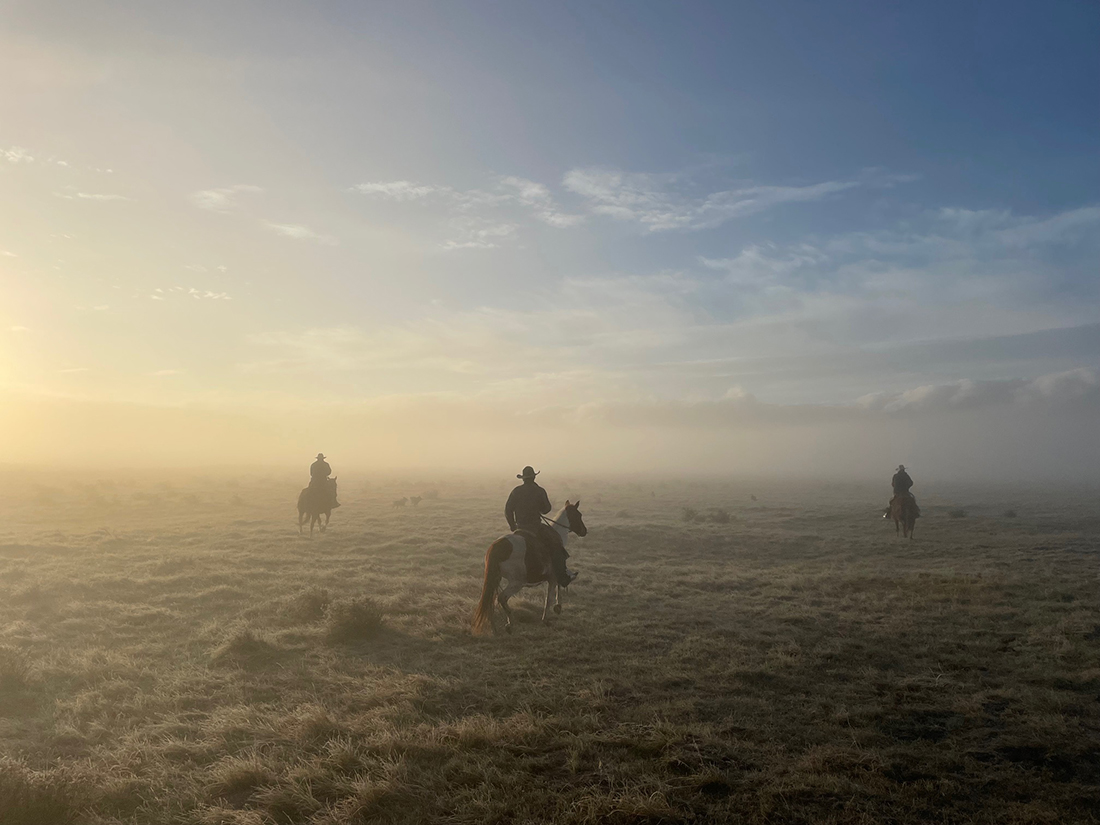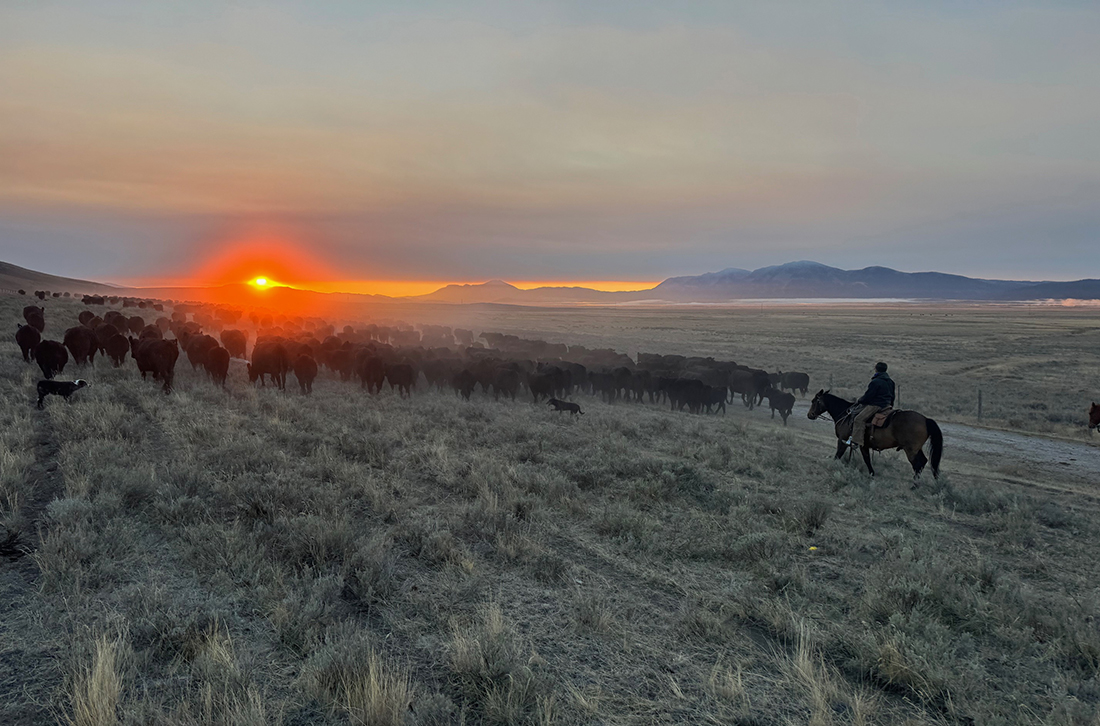Range Rider: UM Grad Saddles Up for Wildlife-Livestock Coexistence

By Emily Senkosky, UM News Service
BEAVERHEAD COUNTY – In the wide-open spaces near Montana’s Red Rock Lakes National Wildlife Refuge, range rider Joe Zecher rides along at a slow, steady clip – scanning the horizon for predators while he checks on cattle herds. A University of Montana alumnus from the W.A. Franke College of Forestry and Conservation, Zecher is exercising his wildlife biology degree with his boots on the ground and his hands on the reins.
Growing up in Virginia and spending time in Montana and Wyoming with family, Zecher always had a connection to the outdoors. That early exposure, combined with his love for wildlife, led him to UM in the fall of 2020, where he pursued a degree in wildlife biology.
Zecher’s academic journey clicked into place during his senior year when he took Mark Hebblewhite’s habitat conservation class, which furthered his interest in large-scale conservation efforts. He also found inspiration through hands-on experiences at UM, particularly during his time with the Wilderness and Civilization program, where he learned about collaborative conservation projects.
“I think UM’s Wildlife Biology Program gave me a good foundation,” Zecher said. “It showed me how many different opportunities are out there that you can do with a wildlife degree.”
During the summer between his sophomore and junior year, Zecher completed an internship with the Montana Department of Natural Resources, where he worked on five different ranches around the state. Through this opportunity, he toured eastern Montana and learned to understand private landowner and rancher perspectives on natural resource issues and land management.
“It was great to build connections with landowners and see their views on different natural resource challenges,” Zecher said. “It gave me context that I didn’t see in my day-to-day classes. I feel like the internship combined with classes helped me zone in on what I wanted to do.”
That exposure led to his current work as a range rider in Montana’s Centennial Valley, just west of Yellowstone National Park. Range riding involves monitoring cattle and wildlife on the vast, rugged landscapes to help reduce conflicts between livestock and predators like wolves and bears. Zecher’s passion for wildlife and horses dovetailed into this role, which requires long days in the saddle, surveying land for signs of wildlife and ensuring the cattle remain safe.
“It has been great to connect my experience with horses with my love for wildlife,” Zecher said.
Part of a landowner-led nonprofit organization, Zecher works with five different ranchers in the Centennial Valley, helping monitor their herds and the surrounding environment. Many of the ranches he works with date back to the turn of the 20th century, and Zecher said the legacy of these operations is a huge part of the culture in this corner of Montana. He believes the range riding program is an essential part of wildlife and land management in the region and is even more crucial in helping ranchers coexist with predators.
“It gives ranchers peace of mind, knowing someone’s out there keeping an eye on their cattle and the landscape,” he said. “They understand that predators are here to stay, and if they want to keep ranching, they’ll need to find ways to coexist.”
As Zecher looks back on his time at UM, he recognizes how the program shaped his career path, even if it was not the plan he had when he first started college.
Next, he plans to apply for range riding jobs in Colorado, where there are full-time positions to help with the state’s reintroduction of wolves. He said his time as a range rider solidified his love for wildlife biology and taught him the importance of private land stewardship and sustainable agriculture for the landscape.
“I think ranching is one of the best ways to preserve wildlife habitat, especially as we see a rapid increase in development in Montana,” Zecher said. “If done right, I think it's a great way to conserve open lands and keep people on the landscape that are doing the right thing.”




###
Contact: Elizabeth Harrison, director of communications, W.A. Franke College of Forestry & Conservation, 917-656-9773, elizabeth.harrison@mso.umt.edu.